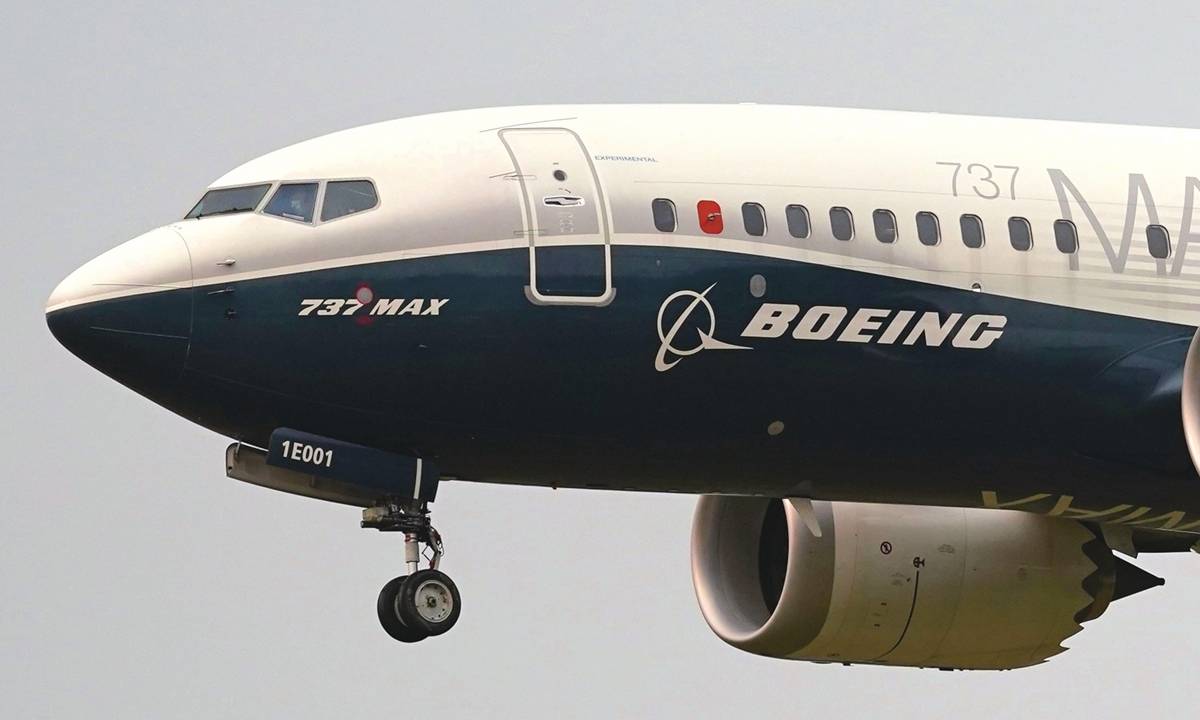The US public opinion appeared sour after three major Chinese airlines announced on Friday they will buy a total of 292 planes from Airbus. The order valued at more than $37 billion is said to be one of the largest ever for Airbus. According to Bloomberg, this is China "sending a sign, and it hurts Boeing terribly." Boeing also expressed its "disappointment," complaining that "geopolitical differences" between the US and China were bruising the company's business prospects and urging dialogue between the governments.
If Washington thinks that every deal Chinese companies sign with foreign companies has "political consideration" behind it, it can only show how serious Washington's practices of forcibly interfering in economy and trade with politics in recent years are, and they have formed an atmosphere in the American business and public opinion circles who see "every brush and tree as enemy soldiers."
In fact, aviation cooperation is among the three main planks of China-Europe economic and trade cooperation. Airbus also has an assembly plant in China. Given the steady and mature cooperation, it is not surprising that they continue to advance cooperation. Some analysts said this mega deal is the result of "long and arduous negotiation" and a collective order by three major airlines could help obtain a good bargain. In addition, the fuel efficiency of the Airbus planes and a weaker euro may also be factors that influence the price. In all, it's a normal business transaction that is hard to find fault with and the result is also equal and mutually beneficial.
It is natural for the US side to feel sour after losing the competition to Airbus. Judging from the performance of these two companies in the global market, since 2019, Airbus has been way ahead of Boeing in terms of competing for passenger plane orders and market share. On the one hand, this is partly due to safety concerns as flights operated by Boeing 737 MAX aircraft have still largely not resumed in various countries. On the other, the disruptions in the US supply chain have seriously affected Boeing's delivery capacity: The company had to pause the production of 737 MAX passenger planes in May. Sources said that China Southern Airlines canceled plans to purchase more than 100 aircraft from Boeing earlier this year because of "uncertainty over deliveries."
Against this backdrop, instead of analyzing the "motives" of Chinese companies, the US should reflect on its government's behavior. Who can feel rest assured engaging in large-scale trades with a country that talks about "decoupling" frequently, wields the stick of sanctions, and often introduces bills to restrict trade with others out of thin air? Not to mention products like planes that have long life cycles, are made of complex components, and require professional maintenance. Such concerns, in many cases, are not even an act of state. It is about the political risks various business entities would think about before doing business.
According to a previous assessment by the American Chamber of Commerce, if the US engages in a comprehensive "decoupling" with China and completely cuts off sales to China in the field of civil aviation, this would cause US output losses ranging from $38 billion to $51 billion and cause the US civil aviation manufacturing industry to shed 167,000 to 225,000 jobs. Boeing also said last year it expected that Chinese airlines will require 8,700 new airplanes in the next 20 years, valued at nearly $1.5 trillion. If the loss of a $37.2 billion order now has made Boeing feel pain, then let some American politicians continue to advocate decoupling from and build a high wall against China. By then, what American companies including Boeing will face will not be short-term but long-term pain.
Now, Boeing has complained about "geopolitical differences" affecting its business, but China is not the one to blame. If there is any political factor in this, it can only be said that the US politicization of economic and trade issues has backfired. In 2021, the Biden administration agreed to put to rest a 17-year trade dispute over subsidiaries between Boeing and Airbus, in order to win over European countries to "jointly confront China." Now, after Airbus won orders from Chinese airlines, US public opinion has been flooded with jealousy. This may also remind the Europe of what is behind various "ideals" that the US claims verbally and Washington of the fact that political manipulation cannot triumph over the law of the market after all.
As for Boeing, the most important thing to do is not to express "disappointment" with China, but reason with US government and Congress the laws of the market on the basis of enhancing competitiveness of its own product. Of course, Boeing is not the only one that needs to do so.




No comments yet
Be the first to share your thoughts!